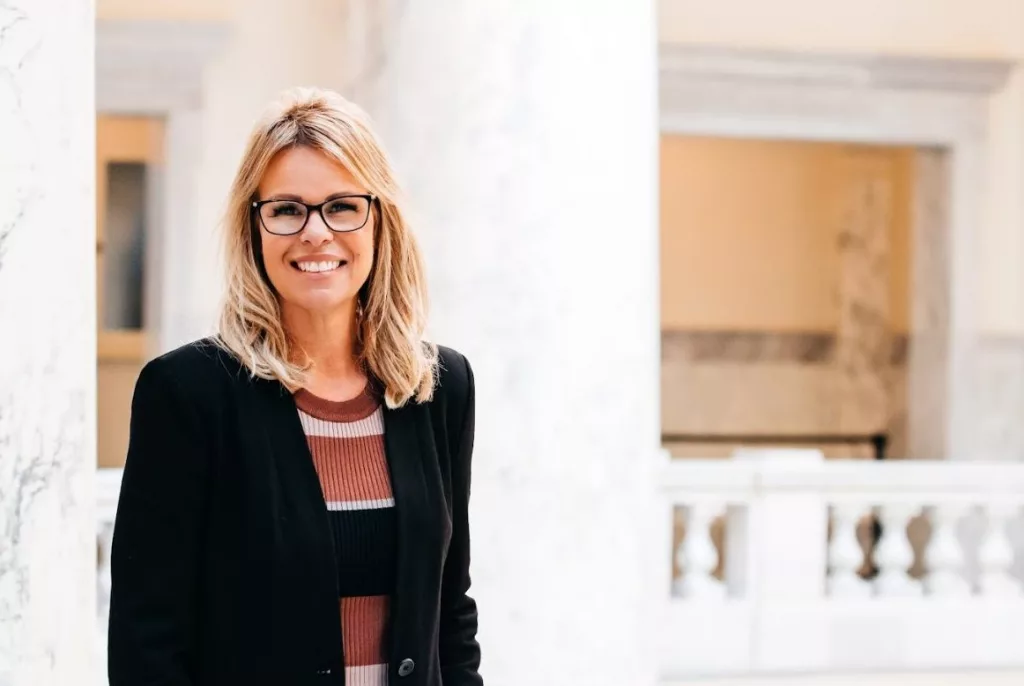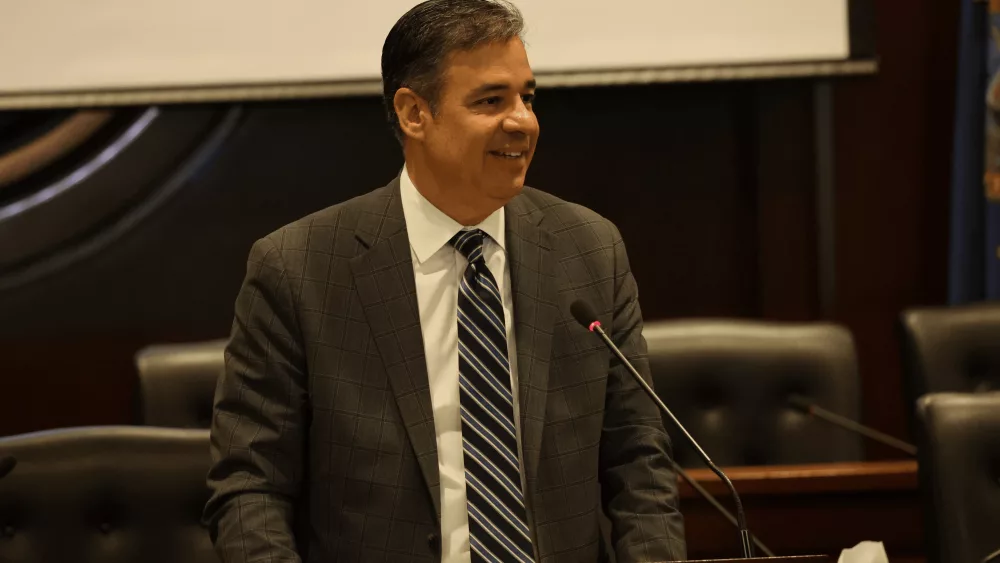Originally posted on IdahoEdNews.org on April 17, 2025
SANDPOINT, ID — For parents, going through the process of working with a school to diagnose and support a child with a disability can be confusing.
So confusing that at a presentation on the process Wednesday, the Idaho Department of Education handed out a packet with 20 acronyms spelled out just to get parents on the same page as presenters.
Superintendent of Public Instruction Debbie Critchfield hopes to provide parents with a community to help navigate the daunting process through her parent partner pilot program, which launched Wednesday in Sandpoint.
The program matches parents who have been through the process with parents just starting to create a connection outside of the confusing system.
The launch comes after the Idaho State Legislature rejected most of Critchfield’s proposals to close the $80 million gap between what Idaho schools currently spend on special education and state and federal funding.
“Statewide, we’re seeing more breakdowns in communication between districts and families. The system creates a natural tension and friction because it’s language that they don’t understand,” Critchfield said in an interview Wednesday. “Your neighbors are your built-in support system.”
Parent Partner Pilot
On Wednesday for the launch of the pilot program, about 20 parents and school district employees gathered to hear an in-depth presentation on the roadmap of the special education process.
Chynna Hirasaki, the state special education director, and representatives from Idaho Parents Unlimited (IPUL) shared resources for parents.
The presentation, Critchfield said, is evidence of how confusing the process can be from getting a child diagnosed to an individualized education program (IEP) meeting where the parent or guardian is outnumbered by school administrators, teachers and specialists.
“This presentation highlights why we want to pilot the parent partner program because it’s complex and even for people who have been involved in it for years, it’s overwhelming,” Critchfield said.
Parents often don’t know the language, littered with acronyms, that educators use every day to talk about students and services.
“The overwhelming feeling that families have when they sit down and they’re trying to go through this information and you’re like ‘I’m just here to help my kid do better in school,’” Critchfield said. “I didn’t know I had to do umpteen federal hoops in order for them to get specialized help.”
During a series of listening sessions last year, Critchfield heard parents and educators in the special education field complain about the confusing process and a lack of resources, without, to Critchfield’s surprise, pointing fingers at each other.
While Critchfield had hoped to provide additional resources to alleviate the stressed system after the legislative session, she hopes the pilot program will reduce tensions and leave parents feeling more supported.
In the Lake Pend Oreille School District, administrators are in the process of identifying parents who have been through the IEP or 504 process and have a basic knowledge of how it works. Those parents will then be asked to join a list where parents just starting the process can give them a call for advice or support.
“Really, for the parent, it’s someone that they can lean on and that they can trust,” Critchfield said.
Lake Pend Oreille was a good fit to pilot the program because Superintendent Becky Meyer has been on top of the issue, Critchfield said. The district focuses on creating education plans centered around a student’s strengths.
The district is also located in Idaho’s panhandle, where services like speech-language pathologists are hard to find.
The parent partner can make suggestions on how to talk with teachers about their student’s needs, find resources, or just share their own personal experience. They also can attend IEP meetings as an advocate.
Critchfield hopes the data from the year-long pilot in Lake Pend Oreille will show a reduction in unresolved cases. She then hopes to create a best practice document to help other districts implement a similar program.
Lillian Tucker, who has children with autism and down syndrome, attended the meeting Wednesday. She thought the program was exciting and acknowledged that her first few IEP meetings were confusing.
But when it comes to being a parent partner, she’s unsure if she’d have time to support others just yet, while navigating her own children’s needs.
Lisa and JD McElroy, who work for the district as an instructional coach and school resource officer respectively, said they were excited about the program, having been through the IEP process with their own child.
“This would have been great to have when we were advocating the first time,” Lisa McElroy said.
She hopes the program will be the “bridge” families need to really understand the system.
“When you speak the same language you can really expedite the process,” she said. “I love the idea of connecting parents that have traveled this road with people who are just starting out.”





